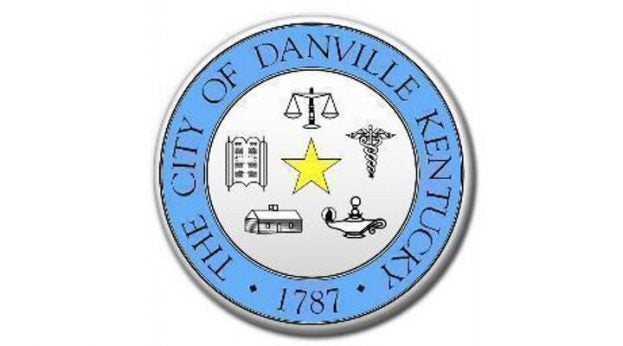Commission approves settlement agreement with deputy
Published 3:19 pm Thursday, July 1, 2021
Deputy had previously worked for DPD
The Danville City Commission on Monday unanimously approved a settlement agreement between the city of Danville and Boyle County Sheriff’s Office Deputy Braydon Hopper, who had previously worked for the Danville Police Department. The agreement included $10,000 paid to the city by the BCSO.
City Attorney Stephen Dexter explained that when Hopper began employment with the city, the city had bought out his contract with the city of Lebanon Junction (where he worked previously), meaning Danville paid for training costs for Hopper incurred by Lebanon Junction. As part of his contract with the city of Danville, he did not stay with the DPD the required amount of time as defined by the contract, so the city didn’t “recoup its investment.” Hopper then entered into employment with the BCSO, without buying out the rest of his contract with the city.
“We reinforced the provision on his contract to have him pay, and I should say that his counsel was prepared after judgment was received, was prepared to bankrupt that particular debt, as there were no assets, other assets owned by the individual, not even a motor vehicle, and in an attempt to gain settlement, the Boyle County Sheriff’s Office paid $10,000 as a buy-out to that contract to the city of Danville,” Dexter explained to the city commission. “The city was actually out about $19,000 and change, so this is a little over half of that, but it did send the effective message that the city intends to enforce its contractual provisions with its officers and honor the commitment that it makes in the educational investment of these officers.”
City staff recommended acceptance of the settlement agreement, Dexter said, and the receipt of $10,000 has been deposited with the city clerk.
Hopper was hired as a police officer by the city of Danville on Nov. 8, 2018, according to Boyle County court records. While working for the Lebanon Junction Police Department previously, he graduated from Department of Criminal Justice Training. His contract with Lebanon Junction required that, should he leave employment with the city within three years, he would pay the city the full amount they had put into his application process, training, equipment, and salary and benefits.
According to court records submitted by the city’s legal representation, Hopper entered into the contract with Lebanon Junction on July 6, 2017, and about a year later, he approached DPD Assistant Police Chief Glenn Doan about working for the DPD, and as part of that interview process, he and Doan talked of Hopper’s “obligation to ‘buy-out’ his employment contract with Lebanon Junction … Hopper was informed if Danville agreed to buy out his contract from Lebanon Junction, then he/Hopper would need to sign a similar contract with Danville.”
Hopper resigned from the Lebanon Junction Police Department and was notified that he owned the city $19,497.98 in a letter dated July 27, 2018, according to the records. Danville paid Lebanon Junction for these expenses.
That being the case, Hopper entered into a contract with the city of Danville, which specified if he left the DPD within three years, he would reimburse Danville for the amount Danville had paid to Lebanon Junction. Though he was hired Nov. 8, 2018, he signed the contract Jan. 11, 2019.
Hopper submitted a letter of resignation to DPD Police Chief Tony Gray on Aug. 27, 2019, who according to the records “cautioned Hopper if he left before the completion of his contract, that he would owe Danville approximately $19,000.”
In his deposition, however, according to the records, when Hopper was questioned if he had intention to repay Danville money with regard to his employment, Hopper replied “no.”
Danville had also purchased $3,500 of equipment for Hopper, according to the records. Charles D. Cole and Janet S. Luo of Sturgill, Turner, Barker, and Moloney, PLLC, who served as legal counsel representing the city of Danville on the case, argued that considering the additional equipment expenses, Hopper owed the city $22,997.98, according to the records.
Gray in an affidavit said the equipment remained in the possession of the DPD, but since it was custom-fit for Hopper, it “cannot be used for another sworn member of the department.”
In response to complaints submitted by the city’s legal counsel, Hopper’s legal representation, Ephraim W. Helton of the Helton Law Office, argued the defendant, Hopper, denied he had entered into a contract with the city on Nov. 8, 2018, since he signed the contract Jan. 11, 2019, and argued the contract was “invalid and unenforceable,” since he had already began employment with the city before he signed the contract and therefore did not owe the city the sum of money in question, according to court records.
Helton also, in the response to complaints signed by Hopper, said Hopper signed the contract “only under duress,” and after he had already begun employment with the city.
Ultimately in the settlement agreement between the city and Hopper, under which BCSO is paying $10,000, this falls short of the amount the city requested, as seen in the records and as stated by Dexter.
City Commissioner Kevin Caudill asked Dexter if the only options were to accept the $10,000 or nothing.
Dexter replied, “A judgment is only as good as your ability to collect it. They’re easy to receive, hard to collect. And so when there’s a lump sum payment offered, it was either accept or potentially — likely — receive nothing if the defendant filed bankruptcy.”
Mayor Mike Perros said he’d “like to thank the sheriff’s office” for the $10,000 deposit.







